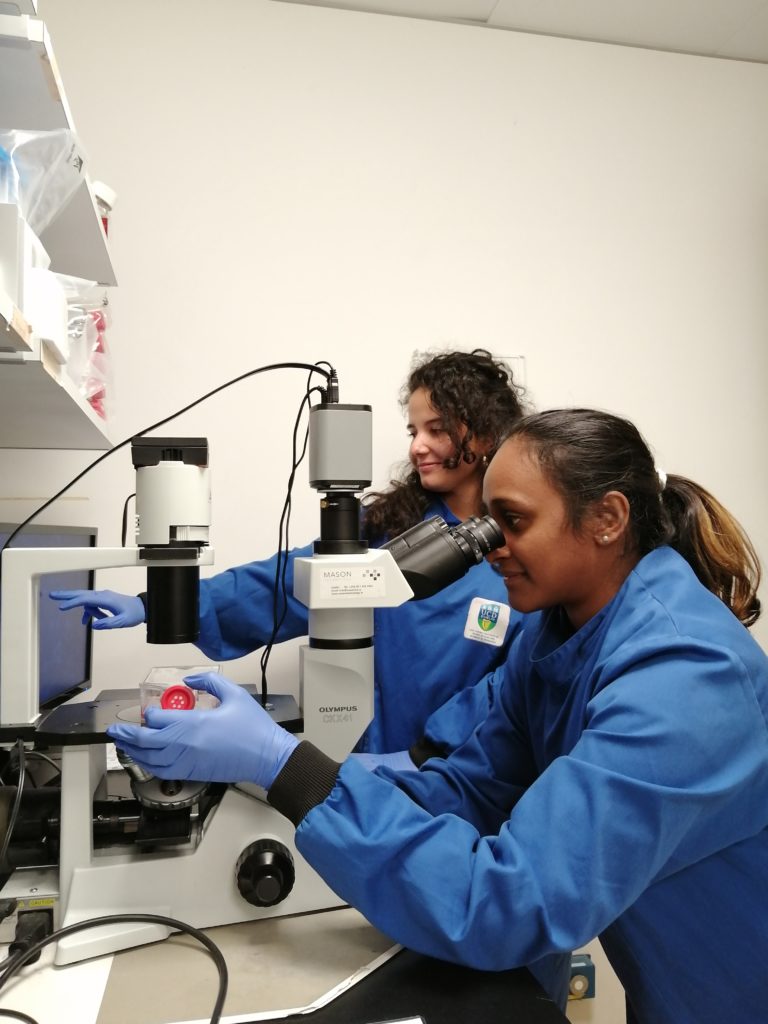Evaluating anti-neoplastic activity of HDAC6 inhibitors in uveal melanoma cells and in zebrafish patient-derived uveal melanoma xenograft models

Marzia Pendino (PhD Award) and Dr Husvinee Sundaramurthi (Post-doctoral Award)
Patients diagnosed with primary eye cancer or uveal melanoma (UM) have poor survival. Furthermore, approximately 50% will suffer from metastatic UM with a median overall survival of 4 to 15 months, with approximately 15% of patients making it to the one-year mark. Within Ireland, it is estimated that the incidence rate of UM per capita is 1.3 cases/100,000 yearly, higher than in the UK or USA.
Current treatment options are surgical removal of the eye and combined radiation therapy. Hence, there is an imperative need to identify novel drugs to treat uveal melanoma. Histone deacetylase 6 inhibitors (HDAC6i) have shown great promise as an anti-neoplastic agent and are currently under clinical trial investigations for other cancers. The goal of this study is to 1) identify the capability of HDAC6i to prevent UM tumor growth and 2) understand how HDAC6i works to prevent UM tumor growth. It is hoped that this study will lead to new therapies for UM.
Research Findings
Publications
Sundaramurthi H, Tonelotto V, Wynne K, O’Connell F, O’Reilly E, Costa-Garcia M, Kovácsházi C, Kittel A, Marcone S, Blanco A, Pallinger E. Ergolide mediates anti-cancer effects on metastatic uveal melanoma cells and modulates their cellular and extracellular vesicle proteomes. Open Research Europe. 2023 Jun 8;3(88):88
Sundaramurthi H, Giricz Z, Kennedy BN. Evaluation of the Therapeutic Potential of Histone Deacetylase 6 Inhibitors for Primary and Metastatic Uveal Melanoma. Int J Mol Sci. 2022 Aug 19;23(16):9378. doi: 10.3390/ijms23169378. PMID: 36012642; PMCID: PMC9409113.
Sundaramurthi H, García-Mulero S, Tonelotto V, Slater K, Marcone S, Piulats JM, Watson RW, Tobin DJ, Jensen LD, Kennedy BN. Uveal Melanoma Cell Line Proliferation Is Inhibited by Ricolinostat, a Histone Deacetylase Inhibitor. Cancers (Basel). 2022 Feb 3;14(3):782. doi: 10.3390/cancers14030782. PMID: 35159049; PMCID: PMC8833954.
Back









 Contact
Contact